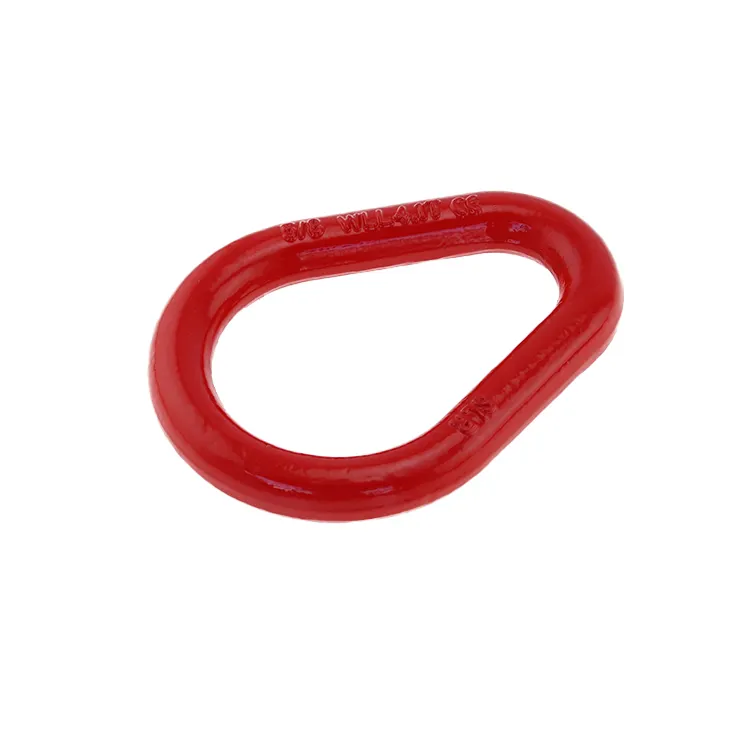News
டிசம்பர் . 16, 2024 23:09 Back to list
Supplier Shipping Shackle Management for Efficient Logistics and Supply Chain Solutions
The Significance of Supplier Ship Shackles in Maritime Operations
In the maritime industry, efficiency, safety, and reliability are paramount. One often-overlooked component that plays a critical role in ensuring these factors is the supplier ship shackle. This equipment, seemingly simple yet incredibly essential, serves various purposes in maritime operations, from securing cargo to ensuring the safe mooring of vessels. Understanding the role of supplier ship shackles is vital for anyone involved in shipping logistics, dock operations, or marine engineering.
Definition and Types of Shackles
At its core, a ship shackle is a U-shaped metal fastener featuring a securing pin or bolt across the open end. Shackles are used to connect different pieces of equipment securely, facilitating the transfer of loads between components. In maritime operations, they are categorized into several types, including screw pin shackles, bolt-type shackles, and safety shackles. Each type serves specific functions and is designed for various weight capacities and applications.
- Screw Pin Shackles These are the most common type used in maritime settings. They are easy to use, can be quickly assembled and disassembled, and are suitable for standard marine applications. - Bolt-Type Shackles These provide a more secure connection and are often used in scenarios where there's a high risk of loosening due to vibrations or dynamic loading.
- Safety Shackles These come equipped with additional safety mechanisms to prevent accidental opening, making them ideal for harsh marine environments where reliability is crucial.
Importance of Quality and Compliance
When it comes to supplier ship shackles, quality and compliance with industry standards cannot be overstated. The maritime sector is governed by strict regulations concerning safety and equipment reliability. Shackles must meet these standards to ensure their integrity under load conditions and adverse weather scenarios.
Suppliers must provide products made from high-quality materials that can withstand the corrosive nature of seawater and the rigors of heavy lifting. Certified shackles, typically marked with certification stamps, should be the norm for any serious maritime operation. Choosing inferior equipment can lead to catastrophic failures, causing not only cargo loss but also endangering the lives of crew members and other personnel.
The Role of Technology
supplier ship shackle

With advancements in technology, the design and production of supplier ship shackles have evolved significantly. Modern shackles may incorporate materials that offer higher tensile strength and lighter weight, improving overall efficiency in lifting and transporting. Additionally, innovations such as RFID tags can be integrated into shackles, enhancing inventory management and tracking capabilities for suppliers.
Digital solutions are also transforming how shackles are inspected and maintained. Predictive maintenance technologies can assess the wear and tear of shackles over time, allowing companies to replace them before they fail. This proactive approach improves safety and minimizes downtime, ultimately leading to more efficient maritime operations.
Best Practices in Selection and Use
When selecting supplier ship shackles, it’s crucial to consider the specific needs of each operation. Several factors should guide this selection process
1. Load Capacity Always choose shackles with a load rating exceeding the maximum expected load.
2. Material Opt for shackles made of corrosion-resistant materials like stainless steel or galvanized steel, especially for operations in harsh marine environments.
3. Inspection and Maintenance Implement a routine of regular inspections to identify any signs of wear or damage.
4. Training Ensure that personnel are adequately trained in the proper use and handling of shackles to promote safety and efficiency.
Conclusion
Supplier ship shackles may seem like small components in the grand scheme of maritime operations, yet their importance cannot be understated. As crucial links in the chain of maritime logistics, they ensure that cargo is transported safely and vessels are securely moored. With the evolution of technology and an increased focus on quality and compliance, shackles have developed into highly specialized tools, integral to the success of any maritime venture. Therefore, understanding their significance is essential for anyone involved in supply chain management, marine engineering, and dock operations.
